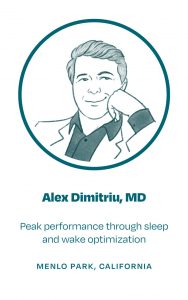
Sleep. In my opinion, sleep should be a vital sign. Along with heart rate, blood pressure, breathing, and pain – sleep is so essential to so many systems in our body, it’s importance cannot be understated. Good sleep can help slow aging, metabolic and heart disease. It can help with weight loss, and youthful skin. It can help your memory, and improve attention and focus. So many younger people I see come to me thinking they may have early stages of Alzheimer’s, and the first place to look, and fix, is sleep. Good sleep can also make you more zen. Being well rested results in improved impulse control – so you are better at resisting temptation, or the urge to act without thinking – this translates into quite a super power for many people. Improved impulse control means it’s easier to stop eating those potato chips or ice cream, easier to respond calmly to a difficult situation, and easier to stop thinking about that annoying thing that person said to you the other day.
Why are we so poor at getting it? Because our motivation and impulse control decline as we get more tired in the evening. So it’s harder to stop watching cat videos late at night (or news, or social media, etc), when you are tired. So it is a catch 22, where the lack of sleep… makes it harder to get to bed on time, to get enough sleep. We have shiny and exciting technology by our beds, and I recall reading that about 1/3 of people check their phone before they even go to the bathroom in the morning. How many of us say the final goodnight to our phones, rather than our bed partner? I’ll leave that question open.
To better understand sleep, it’s important to consider both sleep quantity and sleep quality. With respect to sleep quantity work to create a window of time to allow for up to 8 hours of sleep per night. This means stopping work early enough in the evening to have time to wind down, and ideally – read a book, before falling asleep. All while allowing up to 8, okay maybe 7 hours to sleep. But not less! Also important to keep regular bed and wake times, and not sleep in – sleep loves regularity and rhythm. Sleep also loves a cool, dark and quiet cave, ehem bedroom. Restless legs syndrome – the urge to move one’s legs, worse at night, and improved with movement – can be a hidden cause of insomnia, worth mentioning.
Sleep quality – is an interesting one. Sleep apnea is the most common cause of unrefreshing sleep, or waking up too many times during the night. Bed partners may notice, but in the modern age, you can rely on a great app called SnoreLab. SnoreLab records audio all night, and lets you see a graph of sound over time in the night. You can also click on the loud parts and see what happened right before you woke up at 4AM. By all means not a sleep study, but more reliable than a frustrated bed partner. Watch for daytime sleepiness (not fatigue) – sleepiness is where you would actually fall asleep if given a chance to do so. This can feel a lot like depression in some cases, with low energy, low motivation, and maybe even carb craving. Some people mask these symptoms well with lots of caffeine (workable, but not sustainable long term). Your ability to nap also says a lot about your sleep. Sleepy people will easily pass out for over an hour. Anxious people will be tired but unable to nap even if allowed to do so. They are just too “on,” to sleep – and may have trouble sleeping at night as well – they are just too vigilant, or aware of their surroundings. In my line of work as both a psychiatrist and a sleep doc, it is essential to tease apart whether people feel depressed (sad), tired (but can’t sleep though), or sleepy (zzzz) when things are off.
Ultimately, the further we remove ourselves from artificial light, smartphones, and daily stress, the better we sleep. Good luck, I know. But at least make sure you make sleep a priority and make sure the quality is good. A window of 8 hours for sleep is essential, and some exercise and relaxing, unscheduled times help too. A favorite quote I paraphrase all the time is from Alan Watts, something to the effect of – “the human mind is like muddy water. Leave it alone, and it will settle itself!”
Dr. Alex Dimitriu brings a deep respect for science and spirituality into his work. Professionally, Alex is dual board certified in psychiatry and sleep medicine and completed his training in the Stanford division of Sleep Medicine. As a consultation psychiatrist, he specialized in the complex interplay between the mind and body. In his work, Dr. Dimitriu helps his patients optimize peak performance by day and peak restorative sleep by night. Through the optimization of wake and sleep, he has brought truly amazing outcomes to the most challenging of cases. A thorough understanding of neuroscience and pharmacology are applied to attain the most minimal, efficient and holistic solutions possible. Science and psychology are applied to enhance joy, creativity, cognition, and performance. To learn more about sleep therapy and other areas of his expertise, visit his website: https://siliconpsych.com/. We are grateful to share some of his wisdom in our newsletter!
Alex Dimitriu, MD, June 1, 2021


